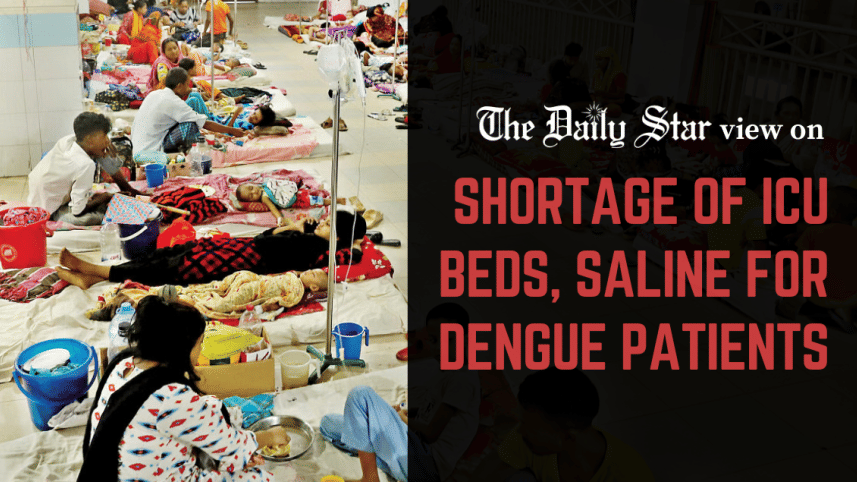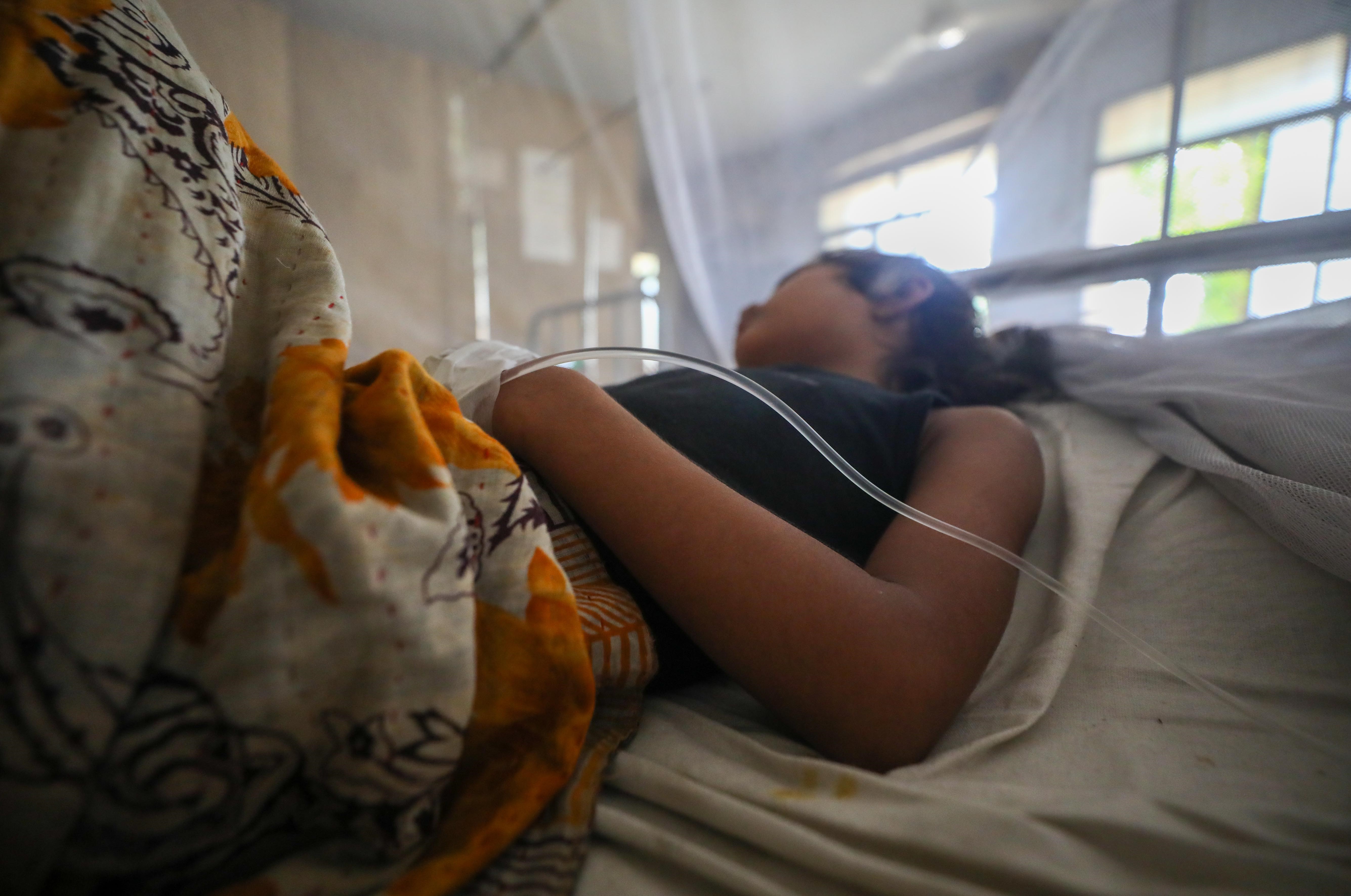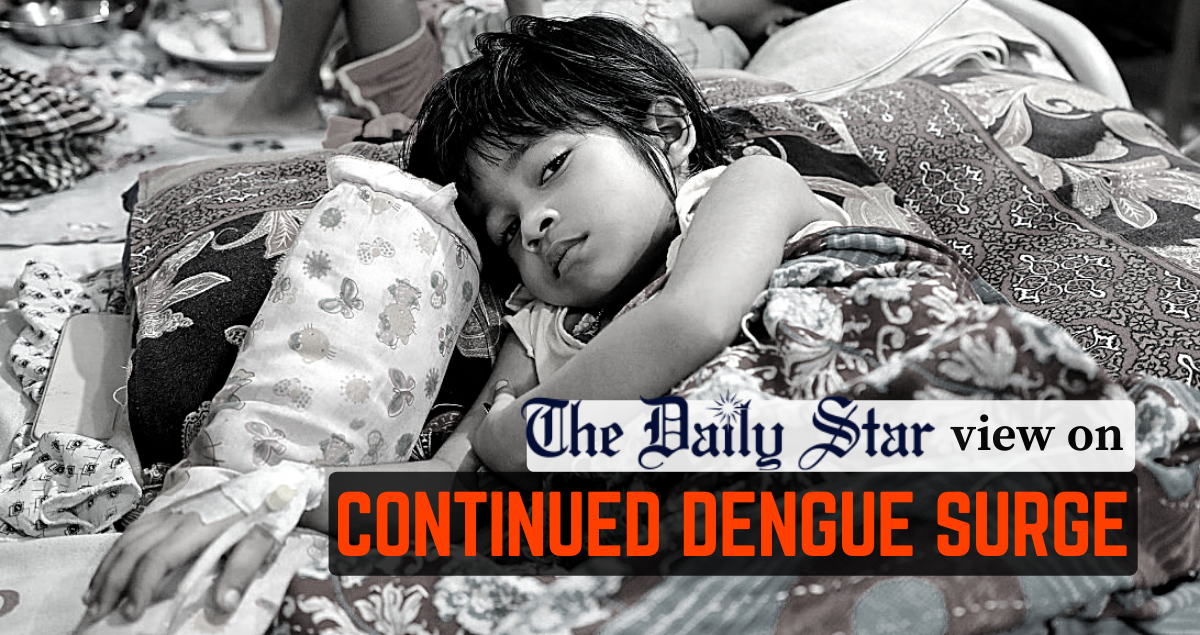Dengue patients deserve optimal care

It is disheartening to see how a long-predicted surge in dengue cases has been overwhelming not just hospitals but also medical equipment and supplies, especially ICU and HDU beds, leaving patients literally gasping for air and shuttling between multiple medical facilities in desperation. The picture emerging out of the hospitals in Dhaka and other districts is quite reminiscent of the heyday of Covid-19, when patients were forced to navigate a similar medical dystopia. Even though the number of ICU beds has increased since then, it is not nearly enough to handle an emergency.
Take, for example, the case of Rafia, a 14-year-old girl battling dengue. As per a report by this daily, despite needing critical care, the lack of vacant ICU beds forced her family to shuttle her between multiple hospitals. Left with no other option, she was finally put in a regular ward at the Shaheed Suhrawardy Medical College Hospital, but not before the duty doctor took an undertaking from her mother that basically absolves the hospital of any responsibility in case something tragic happens. Her name is now on a list where 15 other patients are also waiting for ICU admission, highlighting the stark reality facing so many patients – especially those from underprivileged backgrounds – who must contend with suboptimal treatment in the absence of proper facilities.
According to the Directorate General of Health Services (DGHS), there are around 1,323 ICU beds and 886 HDU beds in different government hospitals. Even combined with those of the private hospitals, their total number is still far from sufficient. As well as the crisis of ICU/HDU beds, there is also a shortage of essential supplies like saline. Essential Drugs, the state-owned pharmaceutical company, is currently rationing injectable saline to public hospitals to manage the high demand. Unfortunately, it remains the sole supplier of saline for the 1,100 or so public hospitals, and despite a ten-fold rise in demand lately, it is not expected to begin saline production in its Gopalganj plant until January next year. Although the six private companies it procures saline from have been recently asked to double their daily production, the lack of preparedness and swift action from the health authorities has been compromising patient care, resulting in needless deaths and suffering. This is most unfortunate.
This year's dengue numbers have already broken all previous records. As of August 10, at least 364 patients died of the mosquito-borne fever in 2023. Of them, 113 died in the first ten days of this month alone. Most of the deaths were recorded in Dhaka hospitals, but more patients are being hospitalised outside Dhaka, which suggests a countrywide, epidemic-level crisis. What this needs is a comprehensive response by, among other things, properly equipping all hospitals. The government must do this urgently so that patients get the treatment they deserve.



 For all latest news, follow The Daily Star's Google News channel.
For all latest news, follow The Daily Star's Google News channel. 


Comments